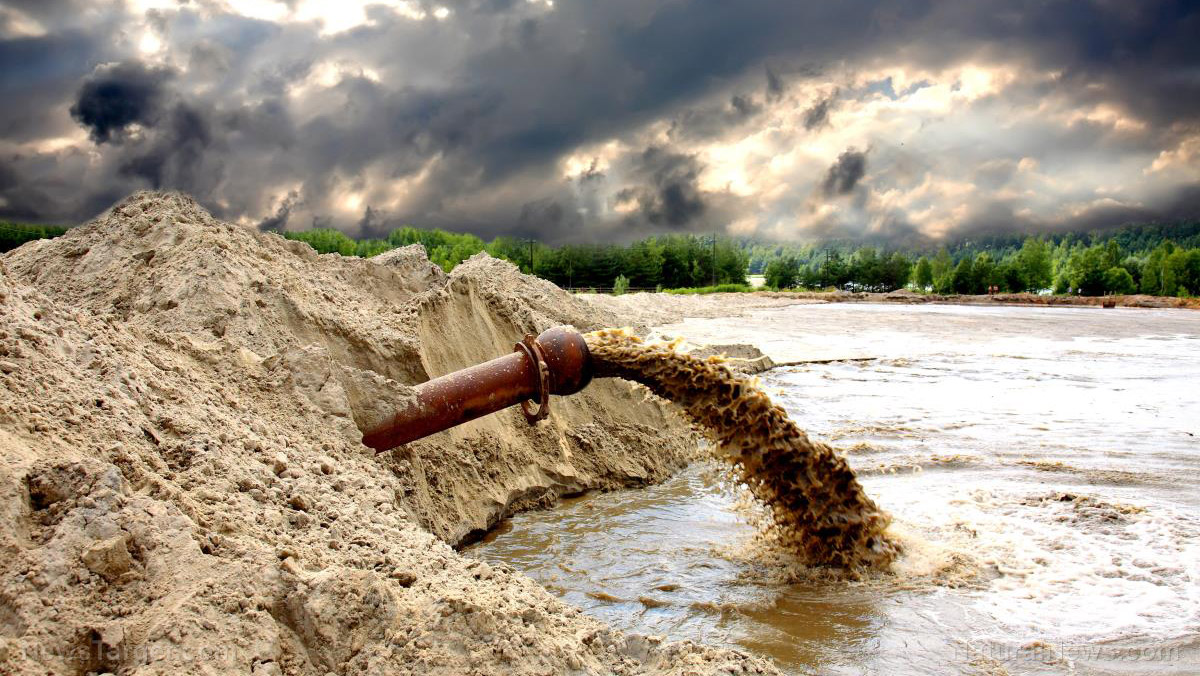Changing to a healthy diet is not just good for you, it also saves a lot of fresh water, according to a new study
11/26/2018 / By RJ Jhonson

As it turns out, eating healthily is good not just for you, but also for the environment. Data from recent research indicates that following a healthy diet can reduce your water footprint and let you save more water.
The world is going through a water crisis. The World Wildlife Fund (WWF) estimates that more than 1.1 billion people around the world lack access to water. About 2.7 billion have to contend with water scarcity for at least a month in a year.
According to a study from the European Commission Joint Research Centre, one of the best ways to help conserve water is to eat healthily. You see – and ironically enough – one of the greatest factors affecting the world’s water supply is food production. About 70 percent of the planet’s freshwater is used in agriculture, says the WWF, and around 60 percent of this is wasted because of faulty infrastructures, such as leaking and ill-maintained irrigation systems.
The water footprint – the amount of freshwater needed to produce certain goods – for raising livestock is even worse than what is required to grow crops. To compare, obtaining a kilogram of vegetables would need around 322 liters of water – getting the same weight of beef requires 15,415 liters. These figures do not yet take into account the amount of water used to process food into canned goods, preserves, and other products.
Agriculture and livestock production also contribute to water pollution. For instance, the fertilizers used to grow plants seep into the ground and pollute underground freshwater or get carried away by the rain to rivers and stream. Contamination with fertilizer chemicals makes bodies of water uninhabitable to fish and extremely dangerous for humans to drink.
Following a healthy diet reduces the amount of water used to produce and process food. The study estimates that a healthy diet with meat reduces water requirements by 11 to 35 percent. A diet that has fish as the main water source reduces the water footprint of production by 33 to 35 percent. Finally, a vegetarian diet uses 35 to 55 percent less water.
Furthermore, a healthy diet places a lot of emphasis on the freshness of food and portion control, minimizing the risk of wastage and overconsumption. It also does away with extraneous amounts of sugar, unhealthy oils, and animal fats, some of which require plenty of water to produce.
The figures came from data taken from more than 40,000 areas in Germany, the UK, and France. They revealed fascinating relationships between people’s food choices and behavior, water footprint, and socio-economic factors, such as their gender, age, and level of education.
For example, the water footprint of milk production in certain areas in France tended to decrease as the population got older. In London, the water footprint involved in consuming wine tended to correlate with the percentage of the population that had attained high education levels.
The researchers made it a point to show national water footprints in terms of the most basic administrative boundaries as this will make it easy for policymakers at various levels to enact changes that would benefit both citizens and the environment.
This method may also be used in assessing the other footprints involved in food production. These footprints include the carbon and energy used to produce and process food items.
Learn about the importance of water at CleanWater.news.
Sources include:
Tagged Under: environment, healthy diet, water consumption, water footprint, water wastage



















